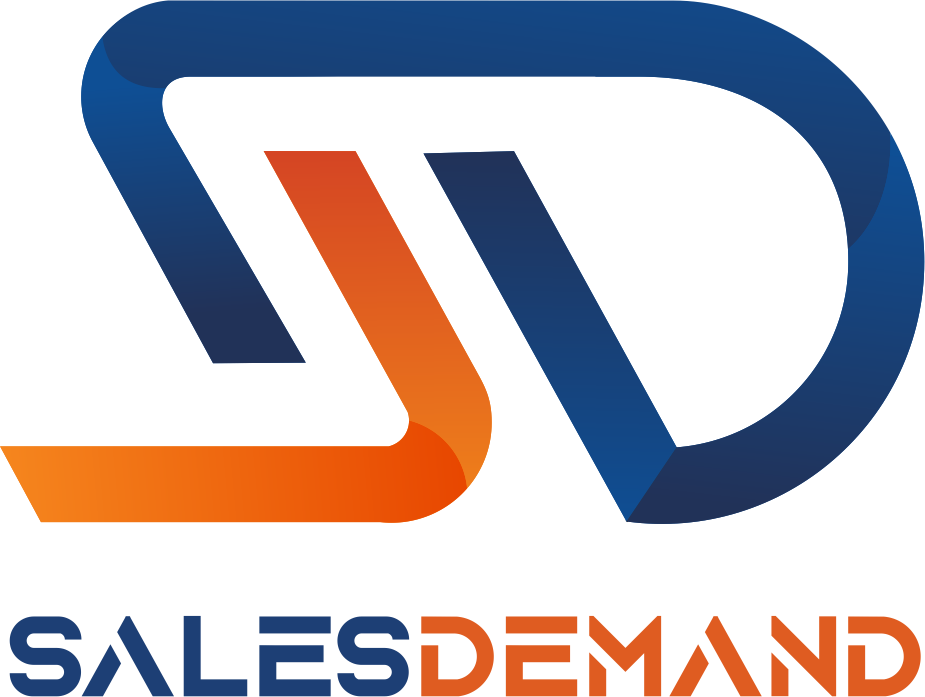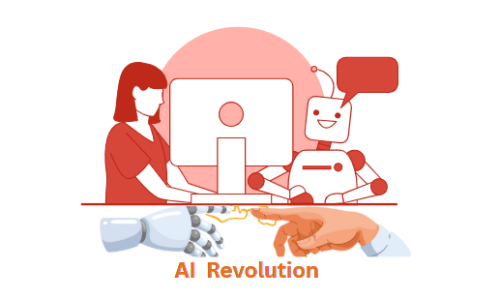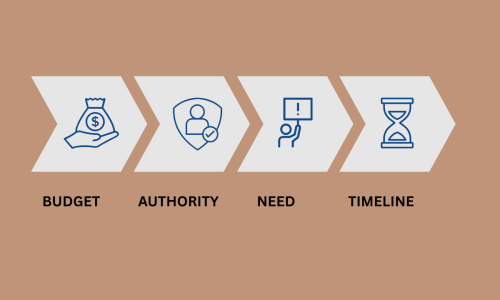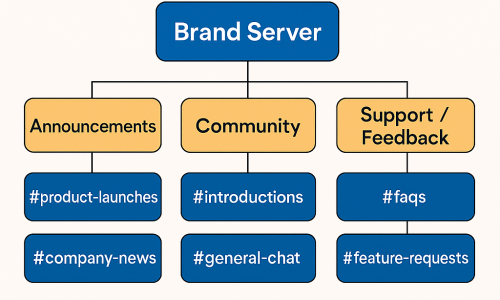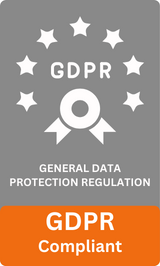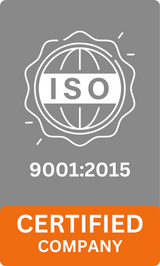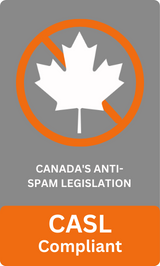
Lead generation has always been at the core of sales and marketing strategies, but with the rise of technology, businesses are constantly seeking smarter, more effective ways to identify, engage, and convert leads. Traditional lead generation tactics, such as cold calling, mass emailing, and relying on human intuition, are no longer sufficient in today’s fast-paced, data-driven world. Enter AI-powered lead generation, an innovative approach that leverages artificial intelligence to automate, optimize, and elevate the process.
This blog will explore how AI transforms lead generation, its numerous benefits, and the cutting-edge tools that make it all possible. From chatbots to predictive lead scoring, AI has the potential to reshape the way businesses attract, qualify, and convert leads.
What is AI-Powered Lead Generation?
AI-powered lead generation uses artificial intelligence technologies to identify, engage, and qualify potential leads. Traditionally, lead generation relies on manual processes like cold calling, emailing, and human intuition to target the best leads.
AI-powered systems automate and optimize these tasks using advanced algorithms, machine learning, and data analytics. These tools analyze vast amounts of information in real-time.
Ultimately, the goal of AI in lead generation is to replace repetitive, time-consuming tasks. It enhances human decision-making by providing data-driven insights, which guide businesses toward higher-quality leads. AI systems continuously learn from data, adapt, and refine their predictions, making them increasingly effective over time.
The Key Benefits of AI-Powered Lead Generation
There are several compelling reasons why businesses are adopting AI-powered lead generation tools. Let’s take a look at the top benefits:
1# Increased Efficiency
AI allows businesses to automate tasks that were traditionally time-consuming, such as sorting through leads, scoring leads, and following up with prospects.
AI-driven tools can scan thousands of leads, assign scores based on their likelihood to convert, and send personalized emails all within a matter of minutes.
This means marketing and sales teams can focus on higher-level tasks like strategizing and building relationships with the most promising leads.
2# Improved Accuracy and Lead Scoring
Manual lead scoring methods can be subjective and inconsistent. AI, on the other hand, analyzes vast amounts of data from social media interactions to website visits to predict which leads are more likely to convert into customers.
With machine learning models, AI continuously learns and refines its ability to assign scores, becoming more accurate over time. This leads to better prioritization of leads and a more efficient use of resources.
3# Personalization at Scale
One of the biggest challenges in lead generation is delivering a personalized experience for each lead. AI can process individual behavioral data, such as browsing history, email interactions, and previous purchases, to tailor content, offers, and messaging.
This allows businesses to send highly relevant information to leads, increasing engagement and conversion rates. AI makes it possible to deliver these personalized experiences at scale, without sacrificing efficiency.
4# Cost-Effectiveness
AI-powered tools often require an upfront investment, but they can significantly reduce long-term costs.
Automating routine tasks helps businesses reduce the need for large marketing teams, cut down on manual labor, and improve the overall return on investment of lead-generation campaigns.
AI tools also optimize campaigns by identifying the tactics that work best and highlighting the most profitable lead sources.
5# Scalability
As businesses grow, managing lead generation can become increasingly difficult. AI systems can easily scale to handle large volumes of leads, making it easier to keep up with growing demand without sacrificing lead quality.
Whether you’re dealing with thousands or millions of leads, AI ensures that each prospect is managed efficiently and that no valuable lead is overlooked.
How AI Improves Lead Quality
Lead quality is crucial when it comes to converting prospects into paying customers. AI enhances lead quality by using advanced algorithms to analyze large datasets and identify which leads are the best fit for your products or services. Here’s how AI achieves this:
1# Data-Driven Decision-Making
To create a thorough picture of each lead, AI-powered systems can analyze information from multiple sources, including social network profiles, website activities, and previous purchases.
AI can identify patterns and behaviors that show the lead’s intent to purchase by analyzing this data. Businesses can improve lead quality by prioritizing leads that have a higher chance of converting all thanks to AI insights.
2# Behavioral Tracking and Analysis
AI-powered systems are highly skilled at tracking user behavior in real time. For example, if a lead visits your website and spends time on a particular product page, AI can identify this as a potential buying signal.
Similarly, AI can track interactions across multiple touchpoints, such as email opens, link clicks, and downloads, to gauge a lead’s level of interest. This helps sales teams focus on leads that are actively engaging with their brand.
3# Dynamic Lead Scoring
Lead scoring is a critical component of lead generation. With AI, businesses can implement dynamic lead scoring, where the AI system continuously updates lead scores based on new data and interactions.
For instance, if a lead shows a sudden spike in activity, their lead score might increase, signaling to the sales team that they are now a high-priority prospect. This dynamic approach ensures that sales teams focus on the right leads at the right time.
AI-Powered Lead Generation Tools and Technologies
There are several powerful AI-driven tools and technologies that can assist in every stage of the lead generation process, from prospecting to lead nurturing. Let’s look at some of the most commonly used tools:
1# AI Chatbots for Lead Generation
AI-powered chatbots are transforming customer interactions on websites. These chatbots use natural language processing (NLP) to engage with visitors in real time, answering their questions, providing information, and collecting key details for lead qualification. Chatbots can instantly qualify leads by asking relevant questions and directing prospects to the appropriate sales funnel.
2# Predictive Lead Scoring with AI
When it comes to lead generation, predictive lead scoring is a game-changer. AI can determine which leads, based on their demographics and behavior, are most likely to convert by studying past data.
For instance, if a lead has visited a product page multiple times, downloaded a whitepaper, and interacted with customer testimonials, AI might assign them a higher lead score, indicating that they are more likely to make a purchase.
This predictive scoring helps sales teams prioritize their efforts and focus on leads that are most likely to generate revenue.
3# Email Automation and Personalization
AI-driven email marketing platforms use machine learning algorithms to segment leads based on behavior, interests, and engagement patterns.
This allows businesses to send personalized email campaigns that speak directly to each lead’s needs and preferences.
AI can optimize email delivery times, subject lines, and content, ensuring that each message resonates with the recipient.
4# Intent Data Platforms in Lead Generation
Intent data refers to the signals that indicate a lead’s readiness to purchase, such as searching for specific keywords, reading product reviews, or browsing competitor websites.
AI-powered intent data platforms track and analyze these behaviors, helping businesses identify leads who are actively researching products or services similar to what they offer.
Understanding a lead’s intent allows businesses to tailor their outreach strategies to address specific needs and pain points, ultimately increasing the likelihood of conversion.
5# AI-Powered Content Recommendations
Content marketing plays a key role in lead generation, but delivering the right content at the right time is essential for nurturing leads.
AI-powered content recommendation engines use data to suggest relevant articles, case studies, videos, or product demos based on a lead’s interests and previous interactions.
6# AI-Integrated CRM Systems
Many modern CRM systems now integrate AI features to enhance lead management. These AI-powered CRMs can analyze customer interactions, track lead behavior, and automate routine follow-up tasks.
AI can automatically send reminders to sales reps when a lead reaches a certain score or triggers specific behaviors, ensuring that no lead is forgotten.
AI-driven CRMs provide valuable insights into customer trends, helping businesses optimize their lead generation and sales strategies over time.
Can AI Help with Lead Nurturing?
AI plays a significant role in nurturing leads through the entire sales funnel, ensuring that prospects remain engaged and are more likely to convert into paying customers. Lead nurturing involves building relationships with prospects over time and guiding them toward conversion. AI assists in this process in the following ways:
1# Automated Communication
AI-powered tools can automate emails, messages, and notifications based on predefined triggers or lead behavior, ensuring consistent communication without manual effort. This saves time, reduces the risk of leads slipping through the cracks, and keeps the sales process efficient.
Example of Automated Communication in Action:
Let’s say a lead has downloaded a whitepaper from your website. AI can automatically send a series of follow-up emails based on that download, such as:
- A “Thank You” email with a link to related content.
- A reminder email offering a demo or consultation.
- An additional resource or case study to push the lead further down the funnel.
With AI handling these communications, businesses can efficiently nurture large volumes of leads with personalized, timely follow-ups, increasing the chances of conversion.
2# Content Personalization
AI can personalize content for leads by analyzing their behavior, preferences, and past interactions. This allows businesses to tailor content to meet their specific needs and interests, such as product features.
AI can automatically deliver content like case studies, videos, or customer testimonials if a lead has shown interest.
This not only nurtures relationships but also builds trust by demonstrating that the business understands the lead’s unique needs, boosting engagement and fostering trust in the sales journey.
Example of Content Personalization:
Consider a potential customer who has shown interest in your software’s analytics feature. AI can track this interest and send tailored emails with resources like:
- Blog posts explaining how to use the analytics feature effectively.
- Webinars featuring use cases.
- Personalized product demos focused on the analytics feature.
This level of personalization helps keep the lead engaged and pushes them further down the sales funnel.
3#. Real-Time Engagement via Chatbots
Another powerful way AI contributes to lead nurturing is through chatbots, which provide real-time, personalized engagement. Chatbots can interact with leads 24/7, answering questions, offering personalized recommendations, and even scheduling follow-up calls.
AI-powered chatbots gather important information about leads during these interactions and use it to better understand their intent and needs.
In addition, chatbots can escalate hot leads directly to the sales team when the right opportunity arises, ensuring that high-value leads are promptly attended to.
4#. Behavioral-Based Lead Scoring
Lead scoring is the process of assigning a numerical value to leads based on their behavior, engagement, and demographic data. AI enhances this process by analyzing vast amounts of data in real-time and assigning scores based on more complex criteria.
This ensures that the most promising leads are nurtured with a tailored approach, while less engaged leads are given the appropriate level of attention.
5#. Multi-Channel Lead Nurturing
AI allows businesses to nurture leads across multiple channels, including email, social media, and SMS, with a unified approach. AI-driven tools integrate data from various platforms to create a cohesive nurturing strategy that ensures leads are engaged wherever they spend their time.
This omnichannel approach ensures that leads don’t miss out on critical touchpoints and receive consistent, personalized communication across channels.
Example of Multi-Channel Nurturing:
If a lead engages with a webinar invitation on LinkedIn but doesn’t sign up, AI can automatically send them a reminder email with a personalized invitation. If the lead opens the email but doesn’t register, AI can follow up with an SMS reminder, ensuring the lead is consistently nurtured across different platforms.
6#. AI-Powered A/B Testing for Lead Nurturing Strategies
AI can also help businesses refine their lead nurturing strategies by running A/B tests and analyzing which messaging, content, and strategies work best for different segments of leads.
By testing variations of emails, offers, and other content, AI provides valuable insights into what resonates with different types of leads, helping businesses optimize their approach and improve conversion rates.
Example of A/B Testing in Lead Nurturing:
AI can test different email subject lines, content layouts, or even calls-to-action to determine which version performs best. Based on the results, it can then recommend the optimal strategies to continue nurturing leads and pushing them toward conversion.
The Role of AI in Sales and Marketing Alignment
One of the most significant challenges for businesses is ensuring that sales and marketing teams are aligned when it comes to lead generation and nurturing. AI can help bridge this gap by providing both teams with valuable insights and data to work with.
1# Streamlining Communication Between Teams
In many businesses, the marketing team focuses on generating leads, while the sales team works to convert them. This division can lead to misalignment if there’s a lack of communication between the two.
AI systems can create a seamless flow of information between teams, ensuring that marketing teams are generating leads that fit the sales team’s ideal customer profile. AI platforms can also help identify leads that have the highest potential to close, enabling sales teams to prioritize their efforts effectively.
2# Enhanced Lead Handoff
The handoff between marketing and sales is often a critical stage in the lead-generation process. With AI, this handoff is much more efficient. AI can automatically categorize leads as marketing-qualified leads (MQLs) or sales-qualified leads (SQLs) based on predefined criteria. The system then notifies sales teams in real time, allowing them to take immediate action and begin nurturing high-value leads.
3# AI-Driven Campaign Optimization
AI isn’t only about managing leads once they’re in the pipeline—it’s also highly effective in optimizing lead generation campaigns. By continuously analyzing past campaign performance, AI can suggest adjustments to current marketing strategies, helping marketing teams run more effective campaigns.
Don’t miss out on our in-depth blog post comparing MQL vs. SQL
How AI is Transforming Lead Generation in B2B and B2C
AI-powered lead generation tools are being widely adopted in both B2B and B2C environments, but the way AI is leveraged varies depending on the context. Let’s break down how AI transforms lead generation in both settings.
AI in B2B Lead Generation
In B2B marketing, lead generation often involves more complex decision-making processes and longer sales cycles. Therefore, AI tools need to be highly specialized and data-driven to deliver results. Here’s how AI works in the B2B context:
1# Account-Based Marketing Automation
In B2B, many businesses implement account-based marketing, where they target specific companies rather than individual leads.
AI supports ABM strategies by helping businesses identify the right accounts to target, predict their buying intent, and personalize outreach efforts.
AI-driven ABM platforms analyze company-level data (e.g., firmographics, social media activity, and intent signals) to identify potential high-value accounts that are a good fit for your services.
2# Lead Qualification at Scale
AI enables businesses to qualify leads at scale, even for large enterprises with thousands of contacts. AI-powered tools can analyze buyer intent signals from various sources, including website visits, social media interactions, and product demos, to determine which leads should be prioritized.
This helps businesses ensure that their sales teams are engaging with leads that are most likely to convert, rather than wasting time on prospects that have low conversion potential.
3# Predictive Analytics for Long Sales Cycles
B2B sales cycles are often long, which means it can be challenging to track which leads are still in the buying process. AI-powered predictive analytics can help by forecasting a lead’s likelihood to make a purchase based on their behavior and engagement patterns.
For example, AI can predict when a company might need a product or service and help businesses proactively reach out with relevant offers.
AI in B2C Lead Generation
On the other hand, B2C marketing often focuses on individuals rather than companies. The process can be more fast-paced, with leads moving quickly from the awareness stage to making a purchase decision. Here’s how AI is used in B2C lead generation:
1# Real-Time Personalization
AI enables real-time personalization in B2C marketing, which is crucial for engaging consumers in an age of high competition and short attention spans. AI analyzes consumer behavior on websites and mobile apps to offer personalized product recommendations, content, and promotions that encourage immediate action.
2# Social Media and Sentiment Analysis
B2C businesses are increasingly utilizing AI tools to monitor social media activity and analyze consumer sentiment. These tools can track customer feedback, identify trends, and detect potential purchase leads. AI can also identify influencers and brand advocates actively promoting products or services.
3# Chatbots and Instant Lead Engagement
Chatbots have become an essential tool for engaging with B2C leads. AI-powered chatbots can assist visitors on eCommerce websites, instantly answering questions, recommending products, and guiding leads through the purchasing process. Chatbots can also collect valuable data about each visitor, enabling marketers to provide a highly personalized experience.
AI-Powered Lead Generation and the Customer Journey
The customer journey refers to the path a prospect takes from first becoming aware of a brand to eventually making a purchase (and even becoming a loyal customer). AI plays a key role in optimizing this journey, ensuring that prospects receive the right information and support at the right time.
1# AI in the Awareness Stage
At the top of the funnel, AI can help generate awareness about your brand and products. Through tools like content recommendations, targeted ads, and social listening, AI can help your business reach the right audience with the right message. AI can also help in lead identification, ensuring that the prospects you target are genuinely interested in your product or service.
2# AI in the Consideration Stage
Once leads are aware of your brand, AI can help nurture them through the consideration stage. By delivering personalized content and offers, AI keeps leads engaged. Tools like email automation, dynamic content recommendations, and retargeting ads ensure that businesses send relevant messages. AI assists with lead scoring, allowing you to prioritize high-intent leads and focus your efforts where they matter most.
3# AI in the Decision Stage
In the final stages of the buyer’s journey, AI can assist with decision-making by providing compelling offers and personalized product recommendations. AI can help sales teams close deals by providing real-time insights into a lead’s readiness to convert. Predictive analytics tools can even help identify when a lead is on the verge of making a decision, enabling sales teams to act at the optimal moment.
The Future of AI in Lead Generation
As AI continues to evolve, its role in lead generation will only expand. The future of AI-powered lead generation will likely include even more advanced technologies, such as:
1# Hyper-Personalization Through AI and Big Data
In the coming years, businesses will likely rely on AI to deliver even more hyper-personalized experiences. AI processes increasingly large datasets in real-time, enabling businesses to create highly individualized customer experiences across every channel. As a result, brands can predict what content, product, or offer a prospect will engage with. This allows them to optimize every touchpoint in the customer journey, improving overall engagement and conversion rates.
2# Voice Search Optimization for Lead Generation
With the rise of voice assistants like Amazon Alexa, Google Assistant, and Siri, voice search optimization is becoming more important. As a result, it will play a larger role in lead generation moving forward. AI tools will help businesses optimize their content for voice search queries and generate leads through voice-driven interactions.
3# AI for Lead Retention and Loyalty
While lead generation is a major focus, AI will also play a growing role in lead retention and customer loyalty. By tracking and analyzing customer behaviors post-purchase, AI can help businesses identify opportunities to up-sell or cross-sell to existing customers. Predictive models can even foresee when customers might churn, enabling businesses to proactively address potential issues.
Conclusion
AI-powered lead generation is not just a trend—it’s the future of marketing and sales. Harnessing the capabilities of AI tools allows businesses to streamline their lead generation processes, improve lead quality, and increase conversions.
AI is changing how businesses approach lead generation, nurturing, and sales. Technologies like chatbots, predictive analytics, and CRM systems are driving this transformation.
As AI continues to evolve, it’s clear that the future of lead generation will be powered by smarter systems. For businesses that embrace these technologies, the opportunity to drive growth and success is limitless.
It’s better to start using AI for lead generation at the earliest. It will help you to stay ahead of the competition in an increasingly digital world.
